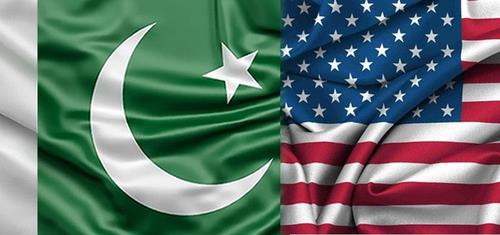US Engaging With Pakistan Despite Failed Country's Decades-Long Terror Links: Report
According to the report in European Times, although Pakistan sat at the core of almost every major jihadist network that has killed or attempted to kill Americans, Washington continues to treat Islamabad as a“strategic necessity”, convening new dialogues despite a troubled past.
It said the US and Pakistan held another Counterterrorism Dialogue in Islamabad on August 12, committing cooperation against“evolving threats”, a move echoing a familiar pattern of aid and engagement followed by bloodshed that the US has experienced before.
The report asserted that even after 24 years since the September 11 attacks, the record for Pakistan remains unchanged.
“The pattern deepened after 9/11. In 2002, Wall Street Journal reporter Daniel Pearl was kidnapped and murdered in Karachi, an atrocity linked in court filings to Ahmed Omar Saeed Sheikh, with al‐Qaeda figure Khalid Sheikh Mohammed later claiming responsibility. In 1997, four American oil workers were gunned down in Karachi; the anti‐Shia Pakistani group Lashkar‐e‐Jhangvi claimed the attack, according to the United Nations sanctions listing. In 2008, Lashkar‐e‐Taiba's three‐day assault on Mumbai killed 166, including six Americans, an attack planned by militants trained in Pakistan,” the report detailed.
The reports indicated that parts of Pakistan's security apparatus have been accused of collusion with terrorist proxies. America's top military officer, Admiral Mike Mullen, in 2011, told the US Senate that the Haqqani Network, responsible for some of the deadliest attacks on Americans in Afghanistan, operated as a“veritable arm” of Pakistan's Inter-Services Intelligence (ISI).
“Declassified records later suggested a Pakistani intelligence officer paid $200,000 to facilitate the 2009 suicide bombing at the CIA's Camp Chapman in Khost, Afghanistan, which killed seven Agency personnel, Pakistan denied the allegation, but the document underscored why US trust remains brittle,” the report noted.
It added that while Pakistan continues to hold strategic significance for Washington, the continuous pattern of militant networks operating from Pakistani soil, sometimes with apparent state backing, raises fundamental questions about whether conventional diplomatic approaches can effectively tackle the long-standing security challenge.
“Until Pakistan dismantles the militant infrastructure that has repeatedly facilitated attacks on American interests, the cycle of cooperation followed by bloodshed is likely to continue, making genuine counterterrorism progress difficult to achieve,” the report stressed.

Legal Disclaimer:
MENAFN provides the
information “as is” without warranty of any kind. We do not accept
any responsibility or liability for the accuracy, content, images,
videos, licenses, completeness, legality, or reliability of the information
contained in this article. If you have any complaints or copyright
issues related to this article, kindly contact the provider above.
Most popular stories
Market Research

- What Does The Europe Cryptocurrency Market Report Reveal For 2025?
- United States Kosher Food Market Long-Term Growth & Forecast Outlook 20252033
- Utila Triples Valuation In Six Months As Stablecoin Infrastructure Demand Triggers $22M Extension Round
- Meme Coin Little Pepe Raises Above $24M In Presale With Over 39,000 Holders
- FBS Analysis Highlights How Political Shifts Are Redefining The Next Altcoin Rally
- 1Inch Becomes First Swap Provider Relaunched On OKX Wallet






















Comments
No comment